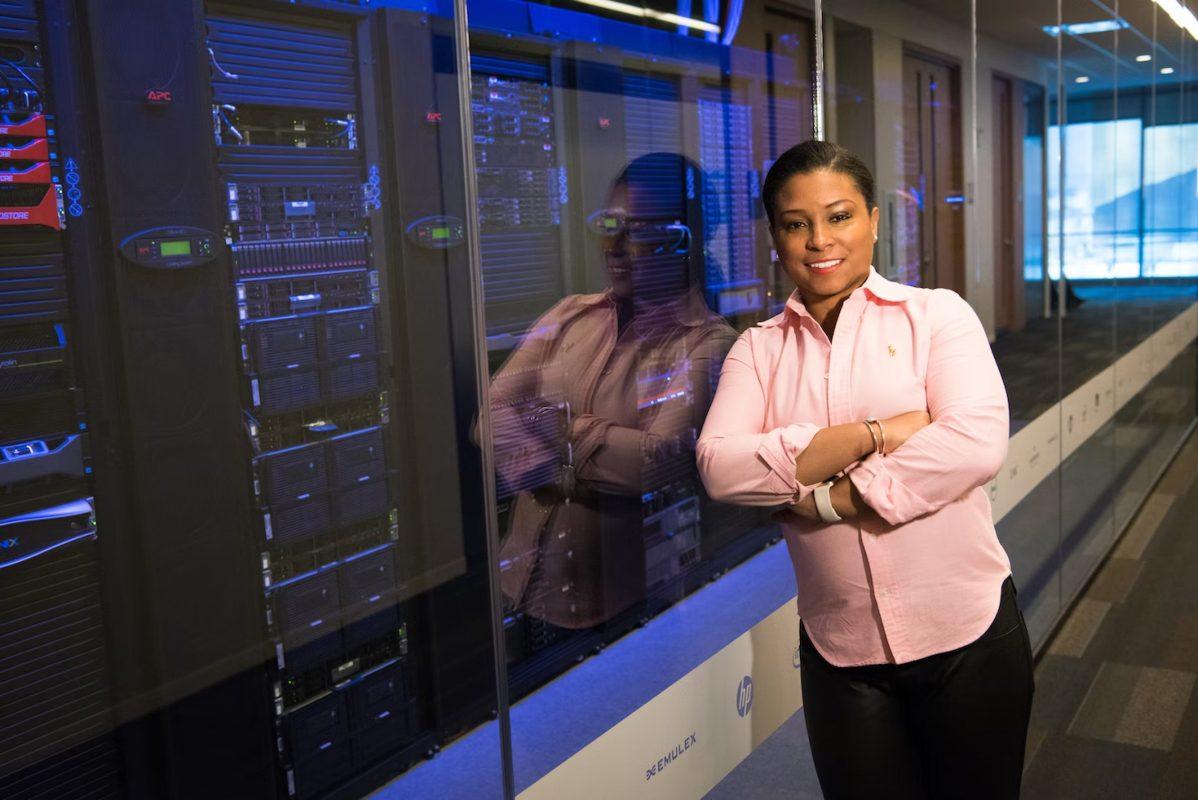
What Is a Product Owner: Core Roles and Responsibilities for Successful Software Delivery
As agile methodologies are the new black in software development, the role of product owner (PO) has become significant. But what exactly does this specialist do for a product?
While the product owner responsibilities might seem blurred and unclear, this expert plays a critical part in product success. This specialist represents the stakeholders’ and users’ needs, defines the product vision, and ensures the development team delivers a high-quality, business-focused product.
In this article, we’ll explore the product owner's various roles and responsibilities in detail, share insights into what makes a good PO, and help you figure out whether your product needs such a specialist.
As an experienced end-to-end development agency, Artkai has worked extensively with agile methodologies. Drawing on our background with products like Coinloan, Nezha, and more, we’ll guide businesses looking for reliable POs and aiming to deliver successful software projects.
Product Owner Roles and Responsibilities Explained
First things first: who is a product owner?
It’s an expert in agile software development who acts as a liaison between stakeholders and the dev team. They represent the voice of the customer and ensure that the product meets the business needs. Here are some of the core product owner roles and responsibilities:
- Develop and communicate the product vision to the development team.
- Define and prioritize the product backlog, ensuring it contains user stories that are relevant, actionable, and adequately estimated.
- Work closely with stakeholders to understand their needs and gather feedback on the product.
- Ensure the development team builds a top-notch product that meets the defined business goals.
- Streamline communication and collaboration between stakeholders and the development team.
- Continuously monitor and adjust the product backlog to align with the product vision and business goals.
- Make decisions on behalf of the stakeholders and guide the development team.
- Act as the primary point of contact for the development team and stakeholders regarding product-related questions, concerns, and decisions.
- Collaborate with the development team to define and refine user stories and acceptance criteria.
- Ensure that the development team is delivering the product promptly.
- Manage the stakeholders’ expectations by regularly updating the product development progress.
- Stay up-to-date with industry trends, customer needs, and business objectives to ensure the product remains competitive and relevant.
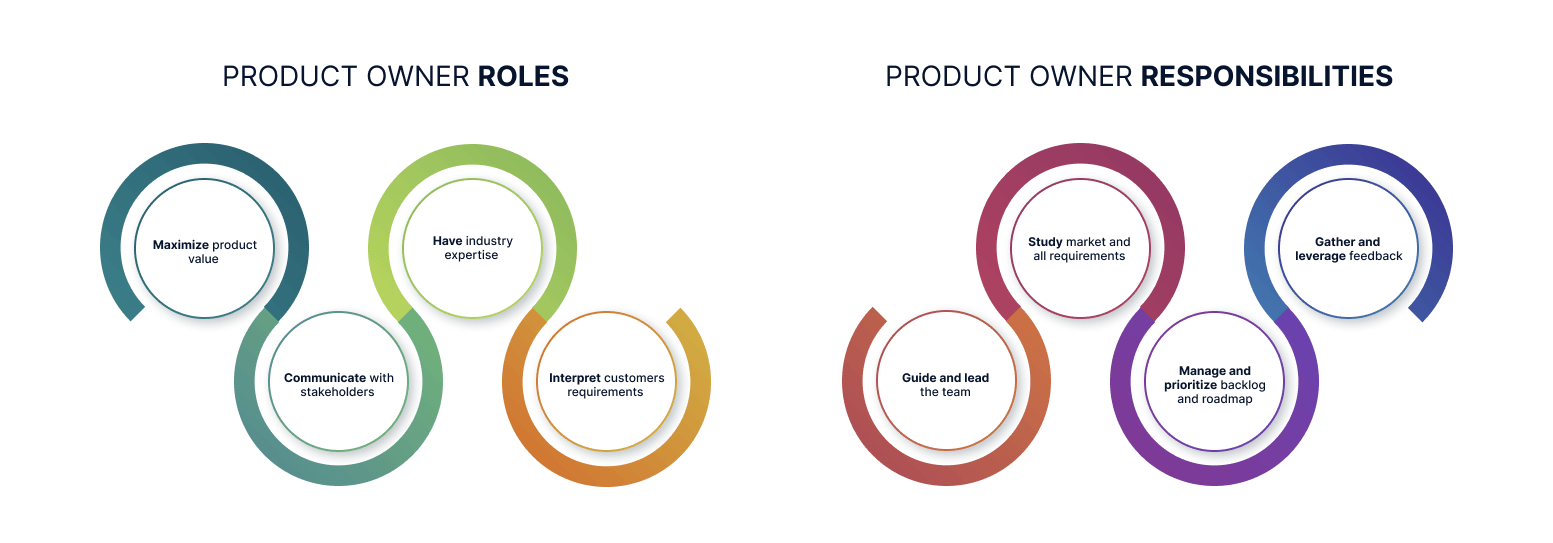
Core Product Owner Roles
Having discovered what is a product owner and reviewed the PO’s responsibilities, you now have a general understanding of this job position. But what is the main role of the product owner? We’ll say it’s product backlog management. The PO must supervise the implementation of features and requirements, prioritize the most critical ones, and ensure the final product corresponds to stakeholder and customer expectations.
Yet, there are other product owner roles worth paying attention to:
Maximizing Product Value
One of the most critical roles of a product owner is to maximize the product value. It involves collaborating with stakeholders to understand their needs, gathering user and stakeholder feedback, and prioritizing the most critical features. The PO also ensures that the product meets customer requirements and benefits them. Here’s how Artkai achieved higher product value for the Coinloan platform:
Maximizing Value for a Web-Based P2P Lending Platform Coinloan
Our client Coinloan, a crypto-to-fiat lending service, required us to build a secure, transparent, and user-friendly web-based platform. We also had to promote this platform through a marketing website.
Our team of 2 UI/UX designers, 2 front-end engineers, a QA engineer, a project manager, a business analyst, and a product owner hopped on those tasks. Our PO determined stakeholders’ requirements, business goals, and KPIs during the research stage. This expert also helped to select the most viable functionality, which was later implemented by the rest of the team.
As a result, we created an easy-to-understand P2P lending platform with a top-notch user experience and an engaging marketing website. Our team led by PO also helped Coinloan to attract over 100k active users.
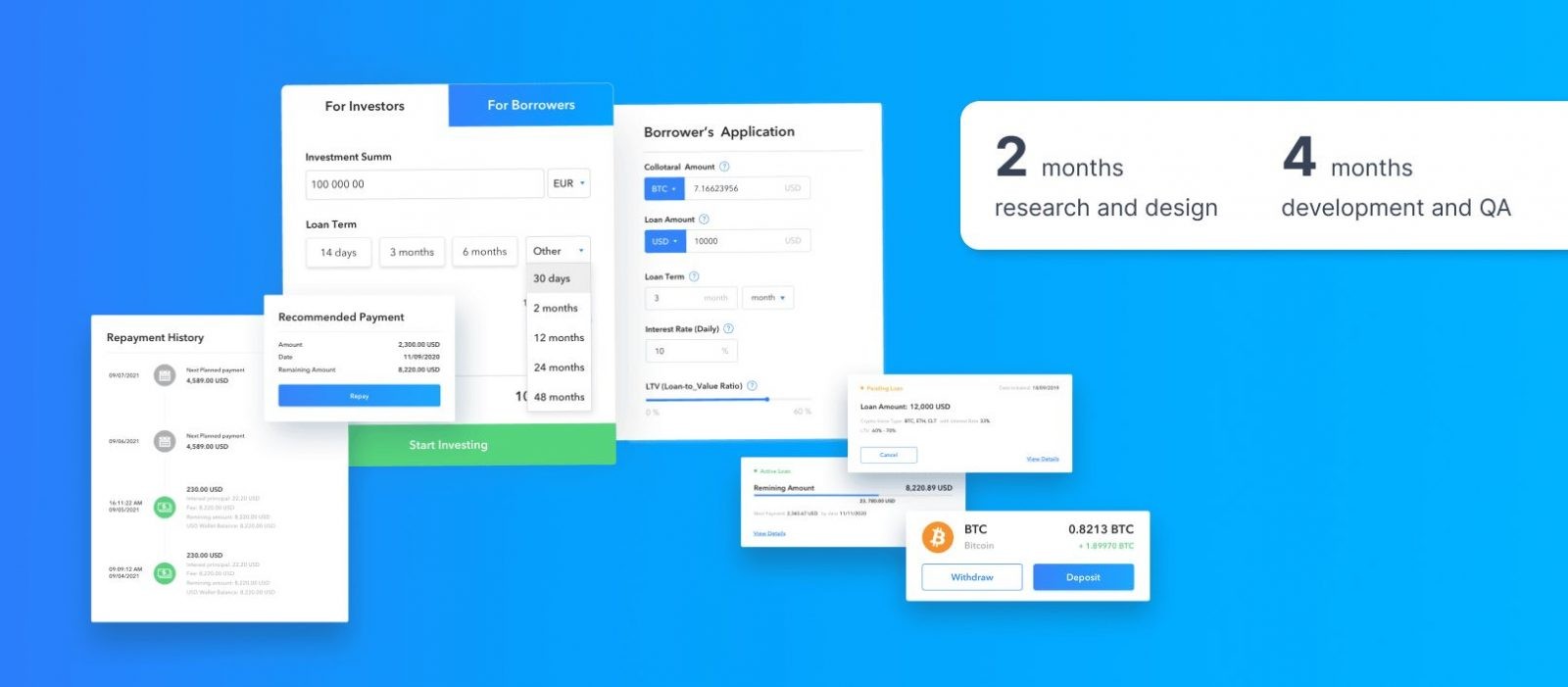
Communicating and Leading the Team and Stakeholders
Effective communication and leadership skills are essential for a product owner. The PO must be able to articulate the product vision to the development team and stakeholders, guide the development team toward the desired outcome, and keep all parties aligned and informed throughout the development process.
Having Industry Experience
A product owner needs to have domain expertise in the area in which the product is being developed. It allows them to speak the same language as the development team, understand technical constraints and possibilities, and make informed decisions about the product’s features and functionality. Without industry knowledge, a PO may struggle to deliver a valuable product with specific characteristics.
Interpreting Customer Requirements Correctly
Understanding and interpreting customer requirements are crucial skills for a product owner. The PO must be able to identify the needs and wants of customers, translate them into actionable user stories, and prioritize them based on the value they bring to the product. By doing this effectively, a product owner ensures that the product meets the customer’s requirements and is well-received in the market. Here’s the Artkai PO’s experience in translating customer needs:
Studying Customer Requirements in Nezha Project
Our client Nezha, a blockchain prediction market protocol, required us to build a web-based platform and engage new users. We had to create a software solution suitable for three types of customers: investors, innovators, and gamblers.
Our extensive team, which comprised front-end, back-end, and blockchain engineers, UI/UX designers, a solutions architect, DevOps, a QA engineer, a project manager, a business analyst, and a product owner, had been working on this project for about seven months. Our PO, in particular, studied the customers’ needs and created three CJMs for each user type.
As a result, we delivered a platform that helps optimize business processes, attracting new and retaining existing customers.
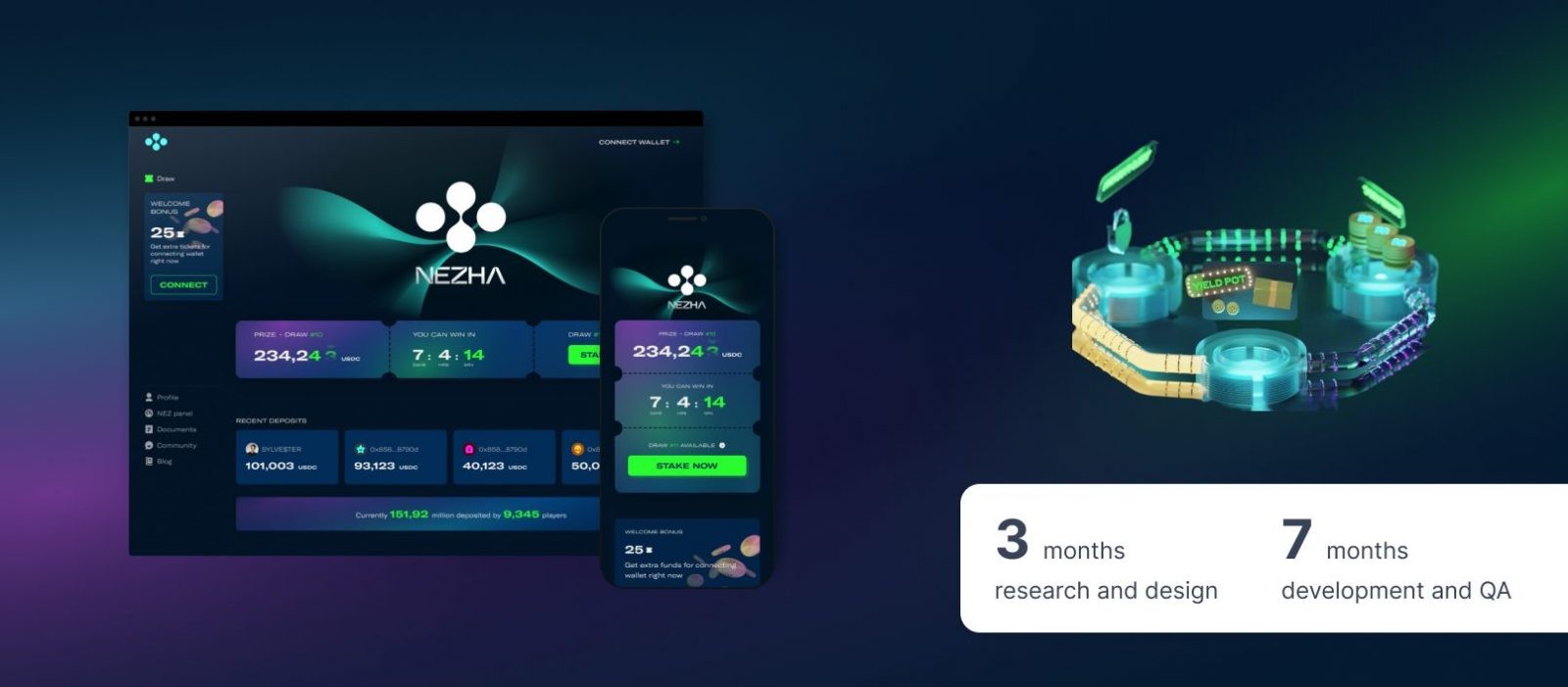
Core Product Owner Responsibilities
Let’s now take a more in-depth look at product owner responsibilities. Here are the main ones:
Guiding the Team in Delivering Value
The primary responsibility of a product owner is to work closely with the development team to ensure that the product delivers value to the business and customers. It can be achieved when teams implement user stories, work through the backlog, and make and test changes during iterations. The PO also engages in the following activities:
- Participating in team meetings and events
- Considering stakeholder feedback and perspectives
- Elaborating user stories
- Ensuring built-in product quality
Studying the Market and Customer Requirements
To ensure that the product meets the customers’ needs and remains competitive, a product owner must stay up-to-date with industry trends, customer feedback, and market demand. A PO has to adopt a customer-centric approach to develop a robust product strategy backed up with data and actionable insights. Some of the related responsibilities include the following:
- Studying customer feedback and preferences
- Studying stakeholder requirements
- Identifying problems and pain points the product should solve
Managing and Prioritizing the Product Backlog
The product backlog is a prioritized list of features and functionality that the development team will work on to create the product. The product owner manages and prioritizes the backlog, ensuring it includes relevant user stories, enablers, and defects. The PO also performs the following tasks:
- Creating stories that correspond to product strategy
- Prioritizing product backlog items
- Validating and accepting user stories
Facilitating the Product Vision and Roadmap
The PO defines and communicates the product vision to the development team and stakeholders. Such specialists must contribute to the product roadmap. The latter outlines the strategic product direction and delivery timeline. To ensure the developed software solutions fulfill the expected vision, the product owner does the following:
- Understanding the market
- Representing user expectations, pain points, and needs
- Helping to prioritize the product backlog
Gathering and Leveraging Feedback
The product owner must gather and incorporate feedback from stakeholders, customers, and the development team to continuously improve the product. It requires a willingness to listen and a deep understanding of the product’s domain. The primary PO’s activities are as follows:
- Testing hypotheses
- Gathering stakeholder and customer feedback
- Sharing stakeholder and customer feedback with the development team
- Studying the feedback
- Suggesting viable solutions
What Makes a Good Product Owner?
Are you still wondering what is the role of the product owner? Let’s summarize this specialist’s core skills and abilities to understand what makes this expert valuable. Here are a few suggestions:
- Strong communication and leadership skills
- Excellent analytical and problem-solving skills
- In-depth understanding of the product domain
- Ability to prioritize and manage the product backlog
- Strong decision-making skills
- Ability to understand and interpret customer needs
- Visionary thinking and ability to contribute to the product roadmap
- Ability to work collaboratively with the development team and stakeholders
- Strong time management and organizational skills
- Ability to keep up with industry and market trends
- Understanding of Agile and Scrum methodologies and ability to apply them effectively
- Ability to negotiate and resolve conflicts
- Understanding of the technical aspects of the product development life cycle
- Empathy and customer-centric mindset
- Ability to measure and analyze product metrics and KPIs
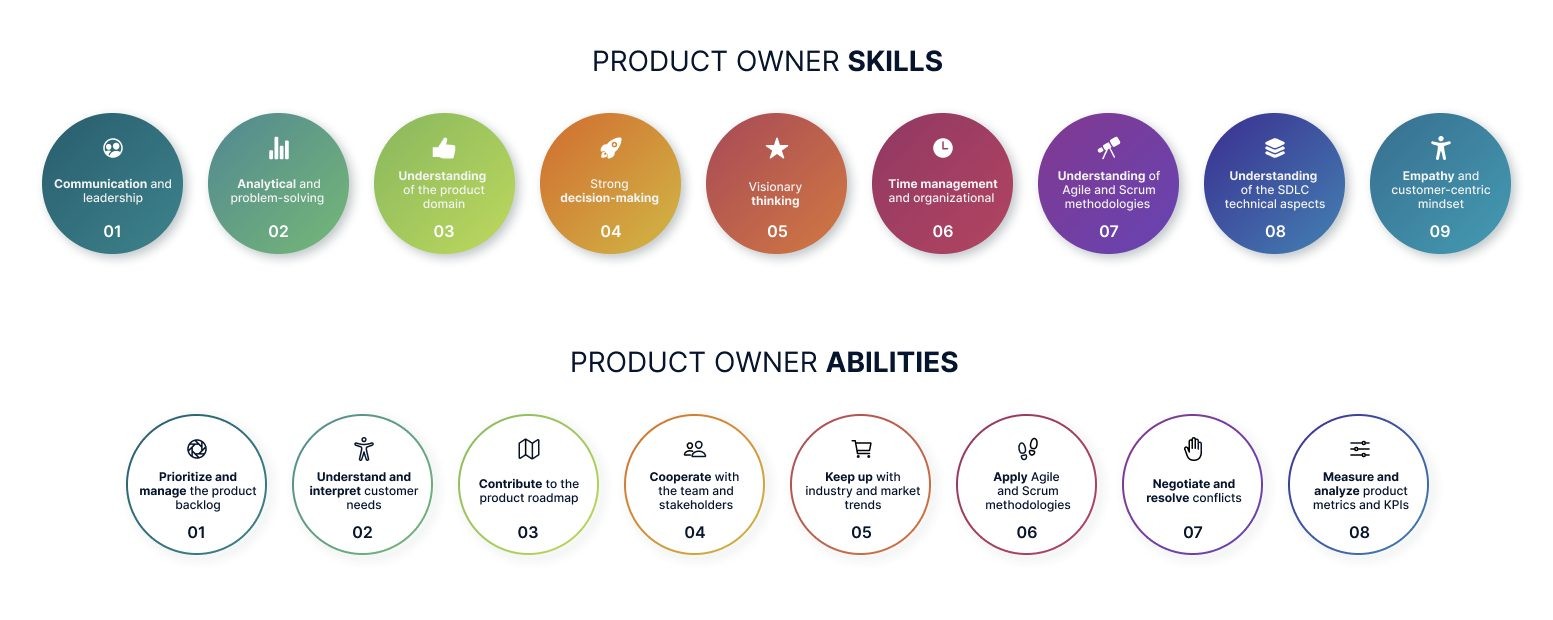
Let Artkai Take Your Product Owner Roles and Responsibilities
The role of product owner is crucial to the success of any product development project. By outlining the product vision, managing the product backlog, interpreting customer requirements, using domain expertise, and communicating with customers, stakeholders, and the development team, the PO delivers significant value to the business.
To be effective in this role, a product owner must possess a unique set of skills and abilities that enable them to manage competing priorities and make informed decisions that drive the product forward.
If you are looking for a reliable and experienced partner to provide a skilled product owner for your project, Artkai is here to help with your team extension. We offer various cooperative approaches, including time & material, a dedicated team, and discovery & business analysis, so you may choose the one that suits you best. Contact us to bring your product vision to life.
Clients and Results
Schedule your free consultation
Don't miss this opportunity to explore the best path for your product. We are ready to delve into the specifics of your project, providing you with expert insights and optimal solutions.
Book your free sessionRead More
Explore articles from Artkai - we have lots of stories to tell
Join us to do the best work of your life
Together we advance the human experience through design.